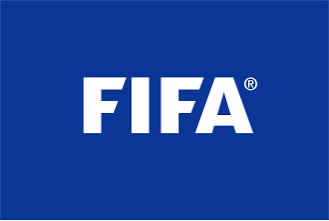
Educationists, parents and other stakeholders are worried about the poor performance of candidates who sat the 2025 Unified Tertiary Matriculation Examination conducted by the Joint Admission and Matriculation Board.
Out of 1,955,069 candidates who sat for the UTME, over 1.5 million of scored less than 200 in the exam. Only 4,756 candidates scored above 320.
JAMB disclosed the data of the examination performance on Monday.
According to the examination body, a total of 7,658 candidates scored between 300 and 319, while over 1.5 million candidates scored below the 200 mark and only 420,415 managed to score above 200.
“A total of 40,247 underage candidates were permitted to demonstrate their exceptional abilities. However, only 467 of these candidates (1.16 percent) achieved scores that meet the threshold for exceptional ability as defined for the UTME, with their performance in the subsequent three stages still pending,” JAMB said in the statement.
According to JAMB‘s data, only 12,414 candidates, representing a mere 0.63 percent of the total 1,955,069 candidates, who sat the examination, scored 300 and above — a benchmark traditionally associated with competitive university courses such as medicine, engineering, and law.
Of this group, 4,756 candidates (0.24 percent) scored 320 and above, while 7,658 (0.39 percent scored between 300 and 319.
However, 983,187 candidates (50.29 percent) scored between 160 and 199, a range typically considered as the minimum cut-off for admission into tertiary institutions.
A total of 334,560 candidates (17.11 percent) scored between 200 and 249, positioning them in the moderate performance bracket.
Over 550,000 candidates scored below 160, with, 488,197 candidates (24.97 percent) falling within the 140–159 range, while 57,419 (2.94 percent) scored between 120 and 139. A total of 5,851 candidates, representing just 0.30 percent, scored below 120, with 2,031 scoring under 100.
This development is eliciting concerns from parents, teachers, school owners and even the candidates, with some of them blaming the examination body for shoddy preparations, which they noted affected the candidates in the actual examination.
A school owner, Mr. Jeff Chima, said the chaotic organisation of the mock UTME where many candidates could not sit the preparatory exam and the posting of candidates to far-flung centres might have contributed to the mass failure.
A teacher in a government-owned secondary school in Lagos, who spoke on condition of anonymity, blamed the falling standard of education due to neglect by the government for the poor performance.
He said, “What we are witnessing now is a result of many years of inadequate attention paid to primary and secondary education by the government. It appears as if we now focus on quantity instead of quality.
“Even private school owners are more interested in the money they make from the students than giving them quality education. Most of the teachers employed by the private school owners are incompetent, while many of my colleagues in government schools are stale as we hardly go for refresher courses. The school curriculum is another problem as it is mostly outdated.”
A parent, Mrs Sherifat Lawal, expressed concern about the fate of many of the candidates, adding that parents were going through a lot due to the prevailing economic situation and would find it difficult to come to terms with having their children and wards waste another year at home.
A candidate, who had high hopes of securing admission to the University of Ilorin, expressed frustration about the general poor performance in the UTME and expressed doubts about his own score, adding that he could not afford not to secure admission this year.









